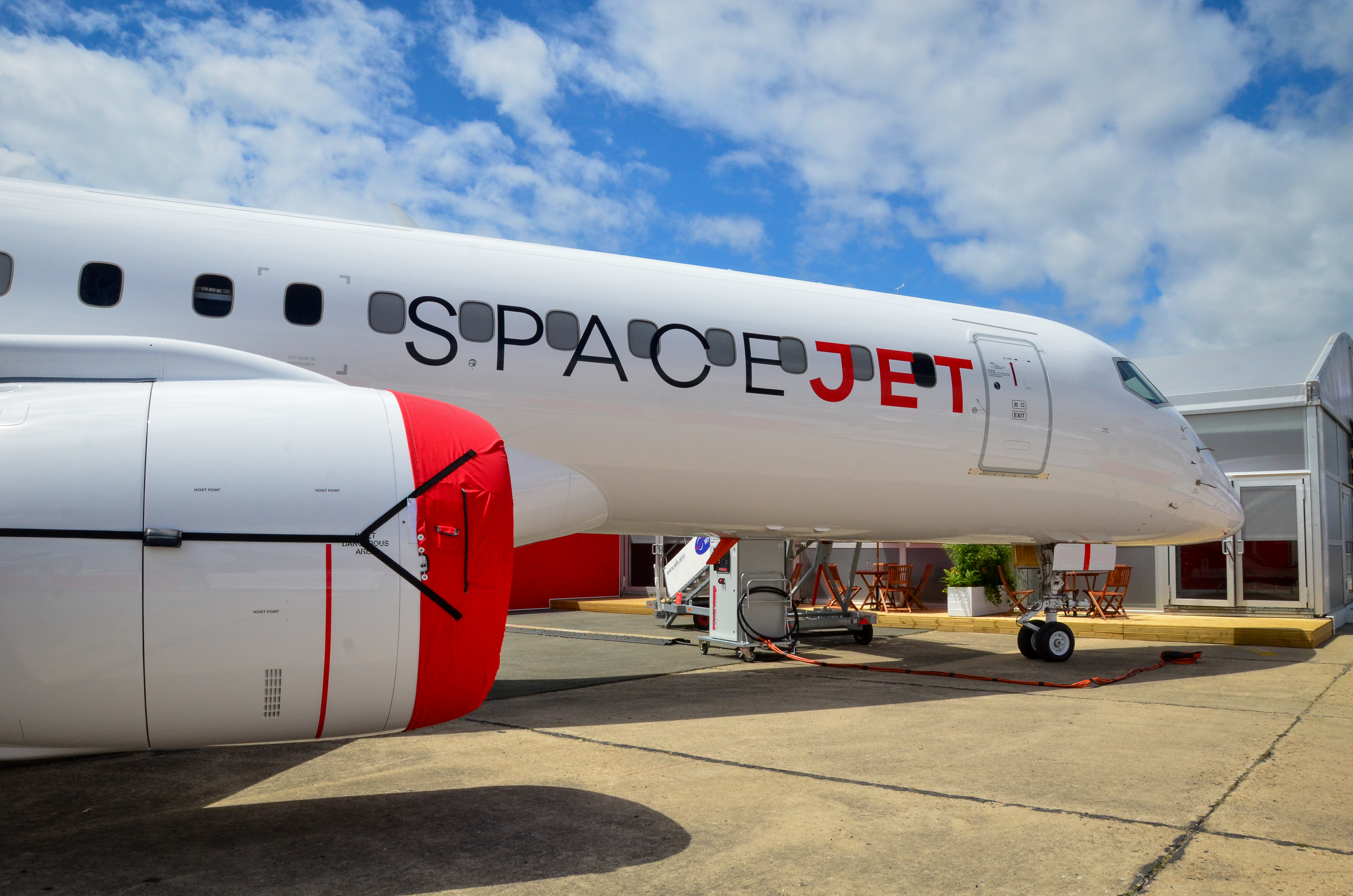Log-in here if you’re already a subscriber
Le Bourget, France — The deal between Mitsubishi and Bombardier is now done. Announced Tuesday, the $550 million agreement will transfer responsibility for the CRJ’s type certificate to Mitsubishi Heavy Industries and with it the aircraft’s global support organization. Production of the CRJ in Mirabel, Québec will wind down over the next 18 months, according to Alain Bellemare, Bombardier’s Chief Executive.
At the deal’s expected closing next year, Bombardier will no longer be a commercial aerospace manufacturer. The strategic coup for Mitsubishi has been years in the making, repositioning the company’s strategy toward internationalization and a re-launch of its product for the United States. On the eve of the Paris Air Show, Mitsubishi formally unveiled its rebranded SpaceJet — the family of aircraft formerly known as the Mitsubishi Regional Jet.

Mitsubishi never intended to compete with Boeing when it launched the MRJ in 2008. But through the industry’s shifting structure and alliances, the Japanese conglomerate is now on a collision course with its most enduring industrial ally. With the nearing completion of the Boeing-Embraer joint venture, the smallest aircraft in the partnership’s product stable, the E175-E1, is now in direct competition with Mitsubishi and its revised M100 in North America, the planet’s most important regional jet market.
Related: Mitsubishi faces a rising monopoly as the sun sets on Bombardier
Boeing will now walk a fine line between industrial cooperation with MHI, commercial activity with Japan’s biggest airlines and fierce competition with Mitsubishi Aircraft Corporation (Mitac) to defend Embraer’s dominant position in the U.S. Just how hard Boeing and Embraer fight Mitac’s ascent will be influenced by factors both inside and outside of the airplane business. The SpaceJet is at the intersection of deep political support of the Government of Japan and its Ministry of Economy, Trade and Industry and Japan’s ecosystem of stakeholders in industry and airlines.
“The Japanese ecosystem and the American ecosystem…our relationship between the United States and Japan is such a kind of very fragile one,” said Shunichi Miyanaga, Chairman of MHI in an interview with The Air Current last week at the Paris Air Show. Miyanga did not see its industrial cooperation with Boeing and its competition with the Boeing-Embraer joint venture as inherently disruptive to the relationship, nor did he anticipate a negative influence on the industrial and political ecosystem. “We can overcome, of course, there should be some conflicts or very healthy competition and then for the other part, we should collaborate or cooperate in making it an even bigger world.”
Continue Reading...Also see:
Subscribe to Continue Reading
Our award-winning aerospace reporting combines the highest standards of journalism with the level of technical detail and rigor expected by a sophisticated industry audience.
- Exclusive reporting and analysis on the strategy and technology of flying
- Full access to our archive of industry intelligence
- We respect your time; everything we publish earns your attention

